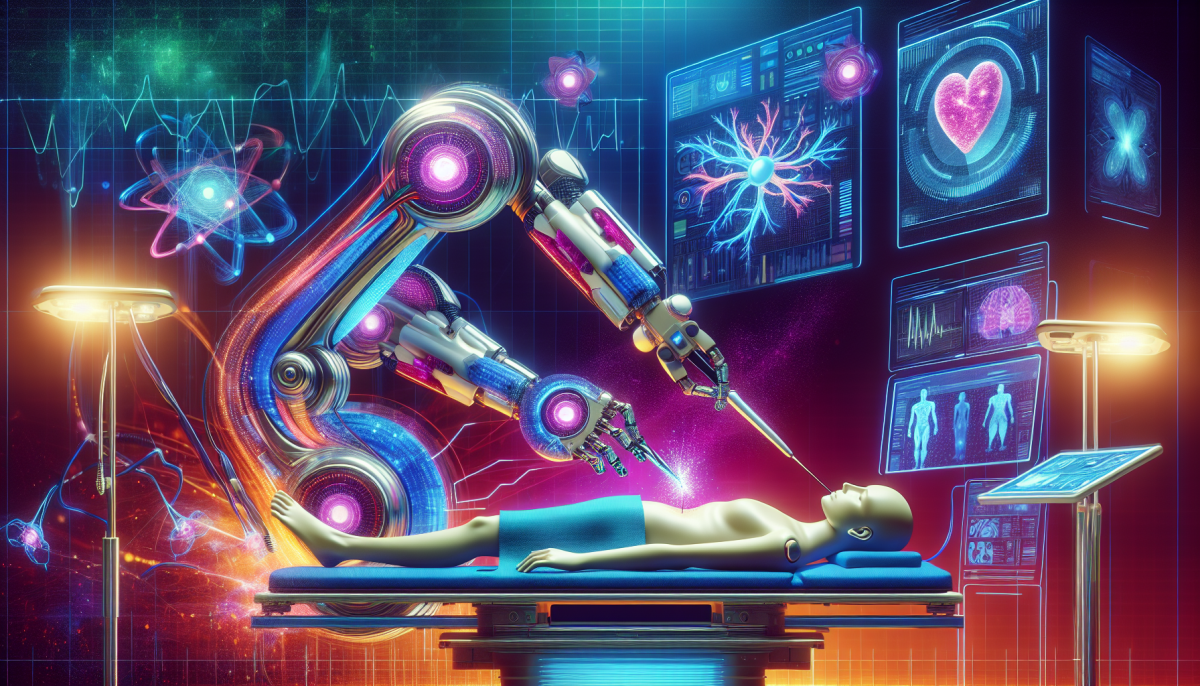AI is seriously changing the game when it comes to diagnosing and treating health issues. Imagine walking into a doctor’s office and getting a diagnosis more quickly and accurately than ever before. That’s what AI is bringing to the table. With its ability to analyze massive amounts of data, AI helps identify patterns that might be missed by the human eye. This means doctors can make better decisions, and patients get the right treatment sooner.
For example, AI algorithms are now used to read medical images. Whether it's X-rays, MRIs, or CT scans, these smart systems can spot abnormalities that could indicate serious conditions. Since they can process images at lightning speed, they help reduce the chances of human error. This is a huge leap, especially in emergency situations where every second counts.
Treatment plans are also benefiting from AI. By analyzing data from countless previous cases, AI can suggest personalized treatment options based on a patient’s unique history and genetic makeup. This tailored approach means patients might experience better outcomes and fewer side effects. Instead of one-size-fits-all treatments, you get a plan that’s truly designed for you.
Plus, AI can keep track of a patient’s progress in real-time. Wearable devices collect data, and AI analyzes it to provide insights about how a treatment is working. If something isn’t going as planned, healthcare providers can quickly adjust the treatment. This continuous monitoring creates a more proactive approach to health care.
Improving Patient Care with Smart Technology
Smart technology is changing the way healthcare works, especially when it comes to patient care. We now have tools that can track your health in real time, making it easier for doctors to keep tabs on what’s going on. Imagine wearing a smartwatch that sends your heart rate and activity level directly to your healthcare provider. This means they can catch potential issues before they become serious.
Telehealth is another game-changer. With a quick video call, patients can connect with their doctors without leaving home. This is super helpful for those who have mobility issues or live far away from medical facilities. Plus, it saves time! Doctors can see more patients, and you get to skip the waiting room.
Then there’s AI analyzing data. It can sift through mountains of information to identify trends and predict health outcomes. For instance, if a lot of similar patients show the same symptoms, AI can alert healthcare professionals to consider certain diagnoses sooner. This not only speeds up the treatment process but also improves recovery chances.
Smart medication reminders also play a big role. Apps can notify patients when it's time to take their meds, helping to avoid missed doses. This is especially useful for those on long-term treatment plans. Keeping track becomes less of a hassle, and better adherence leads to improved health outcomes.
All these technologies work together to make healthcare more efficient and effective. With smart tools, patients feel more in control of their health, and providers can offer personalized care that fits individual needs. It’s a win-win for everyone involved!
Data-Driven Decisions in Healthcare Today
Data-driven decisions in healthcare are game-changers. With AI analyzing mountains of patient data, doctors can make more informed choices. Imagine having access to real-time insights that help diagnose conditions faster and tailor treatments to individual patients. It’s like having a super smart assistant who sifts through all the information for you!
AI tools can spot trends and patterns in patient data that a human might miss. This means predicting which patients are at risk of certain conditions before they even show symptoms. For instance, if a patient’s health records suggest they might be developing diabetes, doctors can intervene early to help them make lifestyle changes. It's proactive care in action!
On top of that, using AI for data analysis can cut down on human error. When healthcare professionals rely on accurate data, they can avoid costly mistakes. Plus, AI helps streamline administrative tasks, so providers spend less time on paperwork and more time with patients. That leads to better care overall.
Healthcare is all about communication, and AI facilitates that too. By analyzing feedback and outcomes, AI tools help healthcare teams improve their services. They can find out what’s working and what’s not, allowing for continuous improvement. With data-driven decisions, it's like having a health system that learns and evolves to offer better care to every patient.
Streamlining Processes for Healthcare Professionals
Healthcare professionals have a lot on their plates. With the constant need to manage patient data, streamline workflows, and ensure high-quality care, the workload can be overwhelming. That’s where AI steps in to save the day. By automating routine tasks and enhancing decision-making, AI makes life easier for doctors, nurses, and everyone in between.
For example, AI can handle appointment scheduling, patient reminders, and even follow-up notifications. This means healthcare workers can focus more on what really matters—patient care. No more juggling calendars or making endless phone calls to remind patients of their visits. With AI doing the heavy lifting, the entire process is seamless.
AI can also analyze vast amounts of patient data in a flash. Want insights on patient trends or treatment outcomes? AI pulls it all together, giving healthcare pros the information they need at their fingertips. This not only speeds up decision-making but also helps in crafting personalized treatment plans that lead to better results.
Additionally, AI tools enhance communication across the board. Whether it’s connecting specialists with primary care physicians or providing real-time updates on patient status, AI bridges the gaps. Everyone stays in the loop, which leads to a more cohesive approach to healthcare.
In short, by streamlining tasks and improving communication, AI helps healthcare professionals focus on what they do best—caring for patients. It's like having a trusty sidekick that boosts efficiency and enhances patient outcomes all at once.



